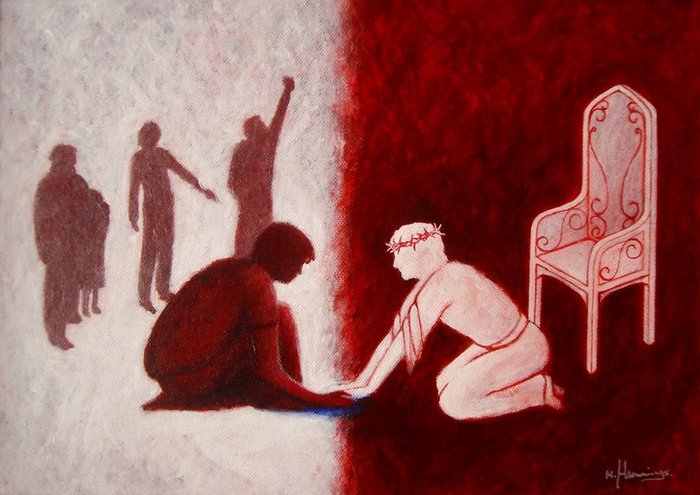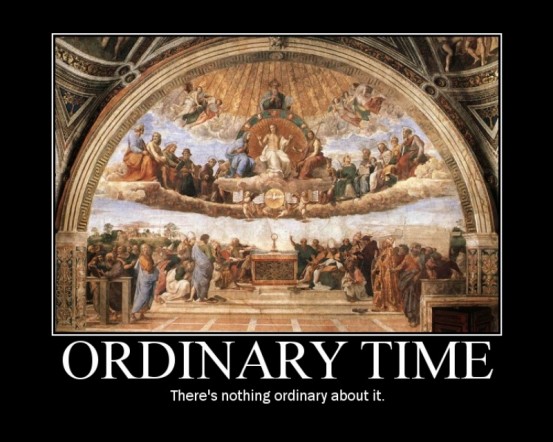Soul Sleep and Parables

I recently had a conversation with someone who believed in Soul Sleep. Naturally, I pointed to various passages in the Book of Revelation of Saints awake and busy in Heaven, as well as asking questions about other New Testament passages:
- When a man dies, does he go straight to judgement , or straight to sleep ? (Hebrews 9:27)
- When we are away from the body and with the Lord, are we asleep with the Lord? (2 Corinthians 5:6–8)
- At the Transfiguration, were Moses and Elijah briefly woken up and brought up to speed with Jesus’ mission (Luke 9:31) and then sent back to sleep?
- In Hebrews we’re told that we’re surrounded by a great cloud of witnesses, alluding to a stadium in which former winners are cheering on those currently running the race. However, is this great crowd all asleep ? (Hebrews 12:1)
However, I spent most of my time pointing to the Parable of Lazarus and the Rich Man:
“There was a rich man, who was clothed in purple and fine linen and who feasted sumptuously every day. And at his gate lay a poor man named Laz′arus, full of sores, who desired to be fed with what fell from the rich man’s table; moreover the dogs came and licked his sores.
The poor man died and was carried by the angels to Abraham’s bosom. The rich man also died and was buried; and in Hades, being in torment, he lifted up his eyes, and saw Abraham far off and Laz′arus in his bosom. And he called out, ‘Father Abraham, have mercy upon me, and send Laz′arus to dip the end of his finger in water and cool my tongue; for I am in anguish in this flame.’
But Abraham said, ‘Son, remember that you in your lifetime received your good things, and Laz′arus in like manner evil things; but now he is comforted here, and you are in anguish. And besides all this, between us and you a great chasm has been fixed, in order that those who would pass from here to you may not be able, and none may cross from there to us.’
And he said, ‘Then I beg you, father, to send him to my father’s house, for I have five brothers, so that he may warn them, lest they also come into this place of torment.’ But Abraham said, ‘They have Moses and the prophets; let them hear them.’ And he said, ‘No, father Abraham; but if some one goes to them from the dead, they will repent.’ He said to him, ‘If they do not hear Moses and the prophets, neither will they be convinced if some one should rise from the dead.’”
Luke 16:19-31
Jesus speaks about two men dying. Do they go to sleep? No – they go to Hades, where one receives blessing and the other receives torment. If Soul Sleep were true, Jesus should describe them both going to sleep until the Final Judgement and then each being conscious of their eternal fate – it would be an easy re-write. However, Jesus doesn’t do this – not only are they both fully conscious, the Rich Man is concerned for those back on earth.
This can’t just be dismissed because it’s a parable – in every other parable of Jesus he describes a real reality this one is no different. In reality, sons leave their fathers, coins lost, and seed falls on different kinds of soil. If such an afterlife made no sense to His hearers, it wouldn’t have been a very good parable. It would have been like Jesus telling a story about reincarnation to make the same point, that we should care for our neighbours, and particularly the poor.

